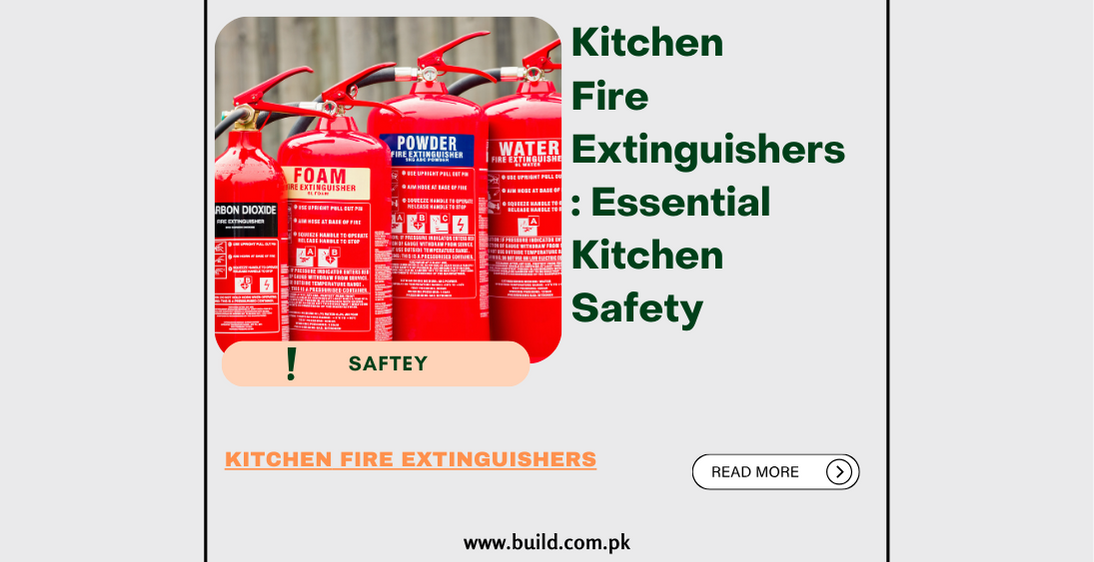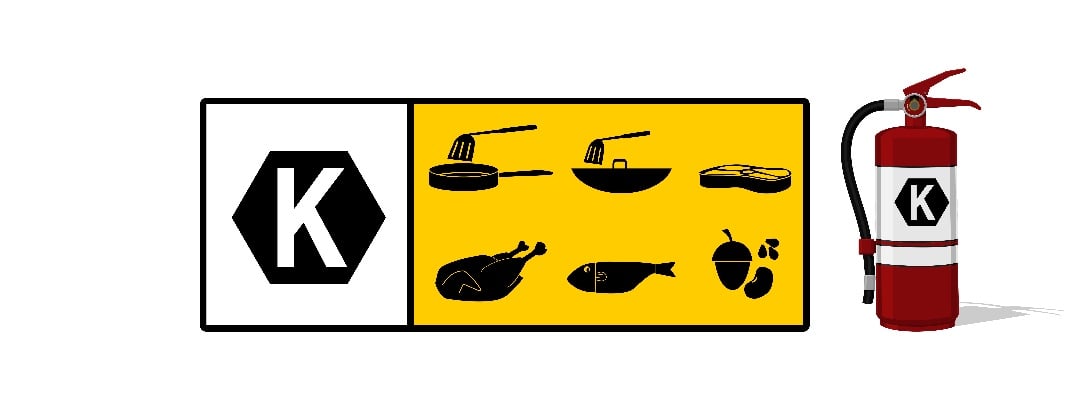Kitchen Fire Extinguishers: Essential Kitchen Safety

Introduction:
The kitchen is the heart of the home, where families gather
to cook, share meals, and create lasting memories. However, it's also a space
where accidents can happen, particularly fires. A kitchen fire extinguisher is
a crucial safety device that can help prevent small fires from escalating into
major disasters. In this comprehensive guide, we'll explore everything you need
to know about kitchen fire extinguishers, from their types and featues to how
to choose the right one for your home.
Understanding Kitchen Fire Extinguishers:
Kitchen fire extinguishers are specialized devices designed
to extinguish small fires that commonl[y occur in kitchens, such as grease
fires, electrical fires, and combustible material fires. They come in various
types, each suited for different types of fires, and are typically compact and
easy to use, making them ideal for home kitchens.

Types of Kitchen Fire Extinguishers
ABC Dry Chemical Extinguishers:
These versatile extinguishers
are effective against fires involving ordinary combustible materials (Class A),
flammable liquids (Class B), and electrical equipment (Class C). They contain a
dry chemical powder that smothers the fire and interrupts the chemical
reaction.
CO2 (Carbon Dioxide) Extinguishers:
CO2 extinguishers are ideal for electrical fires (Class C) as they do not leave residue that can damage sensitive equipment. They work by displacing oxygen, effectively smothering the fire.
K-Class Extinguishers:
Specifically designed for commercial
kitchens, K-class extinguishers are effective against cooking oil and grease
fires (Class K). They contain a special extinguishing agent that reacts with
the cooking oil to form a soap-like substance, preventing re-ignition .
Features of Kitchen Fire Extinguishers
Size and Portability: Kitchen fire extinguishers are
typically compact and lightweight, making them easy to store and handle in
tight spaces such as cabinets or under sinks.
Ease of Use: Most kitchen fire extinguishers are designed for
intuitive operation, with simple instructions printed on the device for quick
reference in case of emergencies.
Mounting Options: Some kitchen fire extinguishers come with
mounting brackets or hooks for easy installation on walls or inside cabinets,
ensuring quick access in the event of a fire.
Pressure Gauge: Many extinguishers feature a pressure gauge
that allows you to check the pressure level and ensure the device is ready for
use at all times.
Fire Rating: Each kitchen fire extinguisher is rated based on
the types of fires it can effectively extinguish and the size of the fire it
can handle. It's essential to choose an extinguisher with the appropriate fire
rating for your kitchen's specific needs.
Choosing the Right Kitchen Fire Extinguisher
Assess Your Kitchen's Risks:
Consider the types of fires that
are most likely to occur in your kitchen, such as grease fires, electrical
fires, or combustible material fires.
Understand Fire Classes:
Familiarize yourself with the
different classes of fires (A, B, C, and K) and choose a fire extinguisher that
is suitable for the specific types of fires prevalent in your kitchen.
Consider Size and Capacity:
Select a kitchen fire
extinguisher with an appropriate size and capacity to handle the potential
fires in your kitchen. Larger extinguishers typically have a higher capacity
and can extinguish larger fires but may be more challenging to handle.
Check for Certification:
Ensure that the kitchen fire
extinguisher you choose is certified by a recognized testing laboratory, such
as Underwriters Laboratories (UL), to meet safety and performance standards.
Placement and Accessibility:
Install the fire extinguisher in
a prominent and easily accessible location in your kitchen, ch as near the
cooking area or exit points, ensuring that it is readily available in case of
emergencies.
Conclusion:
A kitchen fire extinguisher is a vital safety device that every home should have to protect against the risk of fires in the kitchen. By understanding the different types of kitchen fire extinguishers, their features, and how to choose the right one for your home, y can enhance the safety of your kitchen and ensure that you are prepared to respond effectively to any potential fires. Investing in a quality kitchen fire extinguisher and taking the necessary precautions can help prevent small kitchen fires from escalating into major disasters, safeguarding your home and your loved ones.









